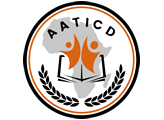Why Attend
Even the best-laid plans and strategies can fail if the team driving the plan is not well developed. Developing high performing teams takes time, effort and a deep understanding of the dynamics of effective teams. This course helps team members and team leaders understand how to create and be part of a cohesive unit aligned to achieving results.
Course Methodology
This course relies on the use of psychometrics aimed at helping participants learn their preferred styles in leading and communicating with others. The course also features the use of a number of case studies, practical exercises and presentations by participants, followed by group discussions.
Course Objectives
By the end of the course, participants will be able to:
- Distinguish between groups and teams and list the major characteristics of effective teams
- Identify team strengths and blind spots after analyzing team members’ personal styles and preferences
- Use individual differences of team members as a gate to higher team performance
- Make decisions by consensus through participation in a number of team building activities
- Describe effective team members’ behaviors and communication patterns
- Lead a team successfully and help it reach its potential
Target Audience
Managers, supervisors and staff whose job involves building teams as well as working in teams.
Target Competencies
- Relating to others
- Communication
- Teamwork
- Collaboration
- Decision making
- Group problem solving
- Self-awareness
Location:
South AfricaTraining Dates:
Each course starts every Monday of each week. Please book your training on a date that is a Monday.Course Duration:
Unit Standard:
NQF Level:
Number of Credits:
Course Fees
Note: Please fill in the online application form on the left or bottom if this page to receive a quotation with detailed pricing from AATICD.How to Apply:
To Apply Simply Fill in the Online Enquiries / Applications form on the Right Sidebar or Bottom of this website https://www.aaticd.co.zaNB:
When filling the online application form; please take note of your desired Training Month, Duration in Weeks and Training Session. This will give us the exact dates you will be attending your classes.Also note that Tuition Fees must be paid upfront on or before training start date. This is to ensure that all resources are made availabe for you before you start. You will not be allowed into training if fees are not paid and verified.
Also note that Tuition Fees Cancellations must be made 14 business working days before the starting date of training. This will allow us to do a 50% refund of the total amount paid. If cancellations are made thereafter note that no refund will be made to delegates.
Tuition Fees include teas and lunch as well as either a laptop or tablet which a delegate will take home free of charge.
Tuition Fee DOES NOT include Accommodation, Dinners and other Extra Curricular Activities or Incidentals. Delegates are expected to fund this on their own. AATICD will not be held accountable for any incidents to delegates.
In-House Trainings are also available for 3 or more delegates for any duration. Please consult with our Administration for such In-House training bookings.
Course Outline
- Teamwork definitions and personal styles
- Myths about teamwork
- 21st-century teamwork definitions
- The concept of synergy
- Characteristics of high performing teams
- Overview of the DiSC behavioral tool
- The 4 behavioral personality styles in the DiSC model
- Personal development profile
- Team personal styles
- High-performance team-building process
- Five steps of the team-building process
- Defining goals
- Agreeing on strategies
- Defining team roles
- Motivating team members
- Assessing team performance
- The Belbin type indicator
- Belbin’s 9 team roles
- Team dynamics
- Team development stages
- Forming stage
- Storming stage
- Norming stage
- Performing stage
- Adjourning stage
- Team problem solving
- Factors shaping team performance
- Phases of team problem solving
- Team decision making
- Building consensus
- Consensus requirements
- Team development stages
- Identifying effective team communication and behavior
- Communication channels
- Communication methods
- Building rapport
- Managing conflict
- Applying conflict management styles
- Team leadership concepts
- Leadership definition
- Leadership versus management
- Styles of leadership
- The implication of attitudes and personality
- Ten ways to empower followers
- Situational leadership
- Levels of development
- Different styles of motivation




